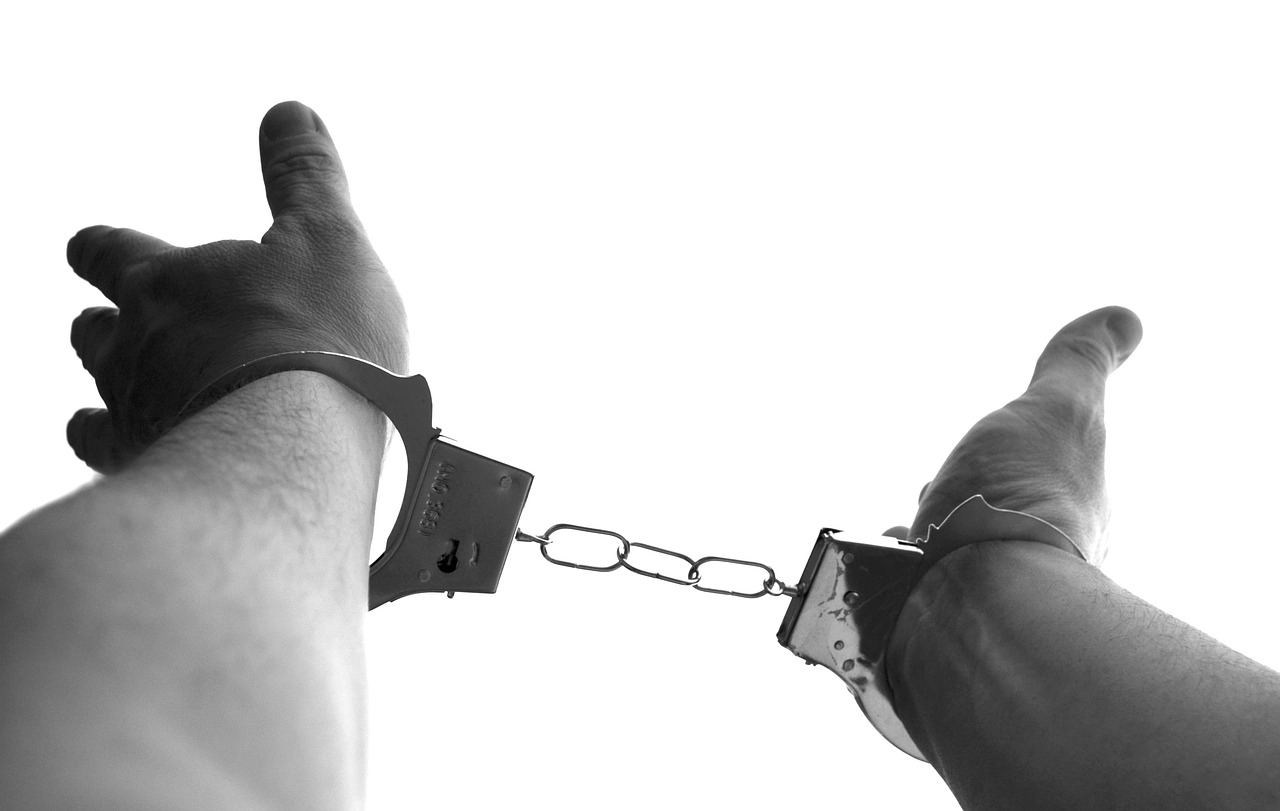In the realm of criminal law, the term “criminal offense” holds a weighty significance that cannot be overlooked. As a respected legal professional, you understand the importance of providing clear and comprehensive information to individuals who may be facing criminal charges. Through informative blog posts, you have the opportunity to shed light on complex legal concepts, humanize your practice, and offer valuable guidance to potential clients. By crafting engaging content that addresses common concerns and showcases your expertise, you can set yourself apart from others in the field and ultimately prompt readers to take the next step towards seeking assistance from a skilled criminal defense attorney like yourself.
Criminal Offense
A criminal offense refers to a violation of the law that is considered harmful to society. It is an act that is prohibited by the government and is punishable by law. Understanding criminal offenses is essential in order to navigate the legal system effectively and protect one’s rights. This article will delve into the different types of criminal offenses, the elements that constitute a criminal offense, the principles of presumption of innocence and burden of proof, the penalties for criminal offenses, common defenses used, the steps in a criminal offense case, and the importance of hiring a criminal defense attorney.

Understanding Criminal Offense
To have a comprehensive understanding of criminal offenses, it is crucial to recognize that they encompass a wide range of actions that are deemed illegal by the law. Criminal offenses can include violent crimes such as assault and murder, property crimes like theft and burglary, drug-related offenses, white-collar crimes like fraud and embezzlement, and many other offenses. Each offense has its own set of elements that must be proven in order to establish guilt.
Types of Criminal Offenses
Criminal offenses can be classified into different categories based on the nature of the offense. Some common types of criminal offenses include:
-
Violent Crimes: These offenses involve physical harm or the threat of physical harm to another person. Examples include assault, murder, and robbery.
-
Property Crimes: These offenses involve the unlawful taking or destruction of someone else’s property. Examples include theft, burglary, and arson.
-
Drug Offenses: These offenses pertain to the possession, distribution, or manufacture of illegal drugs. The severity of these charges can vary depending on the type and quantity of drugs involved.
-
White-Collar Crimes: These offenses typically involve non-violent, financially motivated crimes committed by individuals in business or professional positions. Examples include fraud, embezzlement, and money laundering.
-
Traffic Violations: Although not always considered criminal offenses, some traffic violations can rise to the level of a criminal offense, especially if they result in serious harm or death.
Elements of a Criminal Offense
For an act to be considered a criminal offense, certain elements must be present. These elements vary depending on the specific offense but generally include:
-
Actus Reus: This refers to the physical act or conduct that constitutes the offense. It is the prohibited act that the law seeks to prevent.
-
Mens Rea: This refers to the mental state or intent of the perpetrator at the time the offense was committed. It involves proving that the person had the intent to commit the offense and understood the consequences of their actions.
-
Causation: It must be proven that the act of the accused caused the harm or offense that is being charged.
-
Concurrence: The actus reus and mens rea must occur at the same time. The accused must have had the intent to commit the offense and actually committed the act.
Presumption of Innocence
One of the fundamental principles in criminal law is the presumption of innocence. This principle holds that every individual is innocent until proven guilty. It places the burden on the prosecution to prove beyond a reasonable doubt that the accused committed the alleged offense. This ensures that individuals are not unjustly convicted based on mere suspicion or accusation.

Burden of Proof
The burden of proof lies with the prosecution in a criminal offense case. The prosecution has the responsibility to present evidence and prove beyond a reasonable doubt that the accused is guilty of the offense. This high standard of proof ensures that no one is wrongfully convicted and that the guilty are held accountable for their actions.
Criminal Offense Penalties
Criminal offenses can carry a wide range of penalties depending on the severity of the offense and the applicable laws. Penalties can include fines, probation, community service, imprisonment, or a combination of these. The specific penalties for each offense are outlined in the criminal statutes of the jurisdiction where the offense occurred. Repeat offenses or offenses involving aggravating factors may result in more severe penalties.
Defenses for Criminal Offenses
Individuals accused of criminal offenses have the right to defend themselves against the charges. There are various defenses that can be utilized depending on the circumstances of the case. The role of a criminal defense attorney is to analyze the facts, gather evidence, and build a strong defense strategy to protect the rights and interests of the accused.
Common Defenses Used
Some common defenses used in criminal cases include:
-
Alibi: The accused presents evidence that they were not present at the scene of the crime when it occurred.
-
Self-Defense: The accused asserts that they acted in self-defense to protect themselves or someone else from harm.
-
Insanity: The accused claims that they lacked the mental capacity to understand the nature and consequences of their actions at the time the offense was committed.
-
Mistaken Identity: The accused argues that they have been wrongly identified as the person who committed the offense.

Steps in a Criminal Offense Case
A criminal offense case typically follows a series of steps from the arrest to the resolution of the case. These steps can include:
-
Arrest: The police apprehend the suspect based on probable cause and take them into custody.
-
Booking: The suspect’s personal information is recorded, and they may be photographed and fingerprinted.
-
Initial Appearance: The accused is brought before a judge, and bail may be set. The accused is informed of the charges against them and their constitutional rights.
-
Pretrial Proceedings: This phase involves plea bargains, discovery, and pretrial motions.
-
Trial: If the case proceeds to trial, both sides present their arguments and evidence to a judge or jury.
-
Sentencing: If the accused is found guilty, the court determines the appropriate penalty.
-
Appeals: If either party disagrees with the outcome, they may file an appeal to have the case reviewed by a higher court.
Importance of Hiring a Criminal Defense Attorney
When facing criminal charges, it is crucial to seek the assistance of a criminal defense attorney. A skilled attorney can provide invaluable guidance and support throughout the legal process. They have a deep understanding of the law and can build a strong defense strategy tailored to the specific circumstances of the case. By hiring a criminal defense attorney, you can ensure that your rights are protected, increase your chances of a favorable outcome, and navigate the complexities of the legal system with confidence.
Frequently Asked Questions
-
Q: What is the difference between a misdemeanor and a felony? A: Misdemeanors are less serious offenses punishable by fines and/or up to one year in jail, while felonies are more serious offenses punishable by imprisonment for more than one year.
-
Q: Can a criminal offense be expunged from my record? A: Expungement eligibility depends on the jurisdiction and the specific offense. In some cases, certain criminal offenses can be expunged from a person’s record, effectively sealing it from public view.
-
Q: What should I do if I am arrested for a criminal offense? A: If you are arrested, it is important to exercise your right to remain silent and contact a criminal defense attorney as soon as possible. They can guide you through the legal process and protect your rights.
-
Q: How long does a criminal offense case typically last? A: The duration of a criminal offense case can vary depending on various factors such as the complexity of the case, court availability, and the need for investigations or expert testimony. Some cases can be resolved relatively quickly, while others may take months or even years.
-
Q: How can a criminal defense attorney help me? A: A criminal defense attorney can provide legal advice, protect your rights, analyze the evidence against you, negotiate with the prosecution, build a strong defense strategy, and represent you in court if necessary. Their expertise and experience can greatly improve your chances of a favorable outcome.



